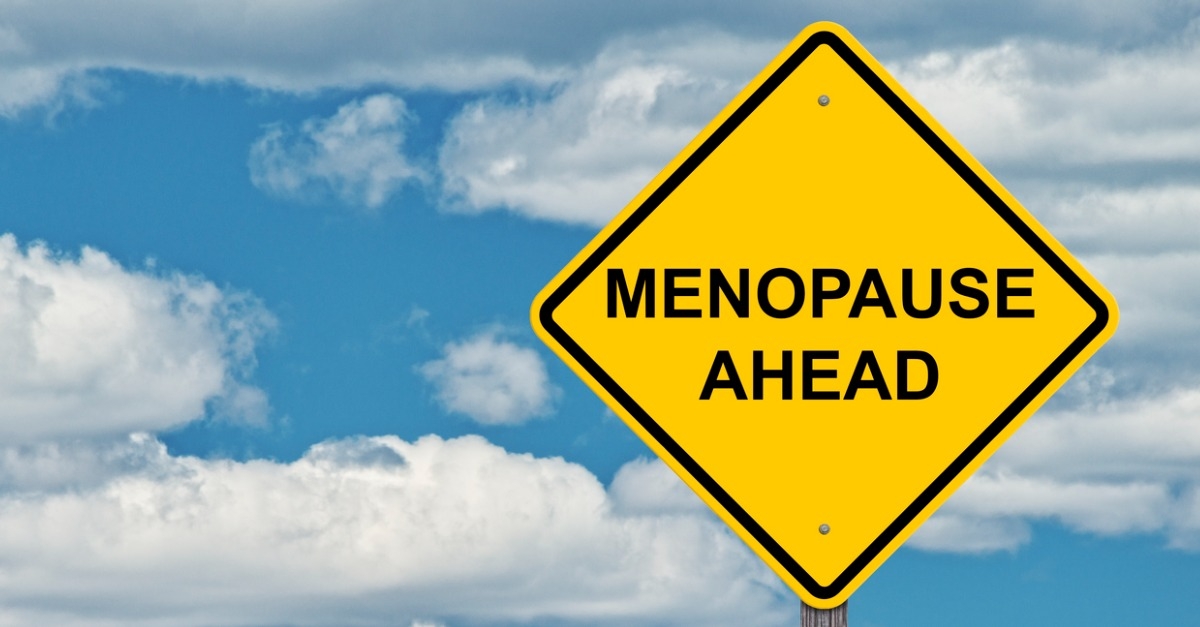Signs of Menopause (Regardless of Your Age)
Sometimes referred to as “The Change” in pop culture, menopause is more formally defined as “the time when your menstrual periods stop permanently and you can no longer get pregnant.”
When, exactly, does the transition into menopause begin? Age, family history, and prior medical conditions can all play a part in its onset. According to the Endocrine Society, “In the United States, the average age for menopause is 51 for non-smokers and 49 for smokers, with a typical age range somewhere between 47 and 55 years. Some women experience menopause sooner — before age 45 is considered early menopause, and before age 40 is considered premature menopause.”
Still unsure when to expect yours? As the North American Menopause Society admits, there’s “No clear starting or ending point, odd diversions, and an estimated time of arrival that could span years.”
But there are a few signs you can look for, and we’re here to help you navigate them.
Irregular Periods
“A ‘change’ can mean a lot of things when it comes to your menstrual period,” The American College of Obstetricians and Gynecologists explains. “It could be a change in the length of your cycle. It could mean your period is coming more often or less often. The flow could be heavier or lighter than you’re used to. You also could have some bleeding or spotting between periods.”
If you’re experiencing irregularity in an otherwise “you-could-set-your-clock-to it” menstrual cycle, this may signal the beginnings of menopause (also known as perimenopause). Regular appointments with your gynecologist can help track these changes and determine whether you are truly in menopause or not.
Mood Shifts
“During menopause, it’s common to experience mood changes such as irritability, sadness, lack of motivation, aggressiveness, problems focusing, stress, difficulty concentrating, and depression,” Mental Health UK explains. These mood changes can be due to normal hormone shifts in your body, a previous history of depression or mental health issues, mid-life psychological changes, and other factors.
If you’re noticing unexplained changes in your mood — those that sharply veer from your stable “norm” — talk to your gynecologist to help identify whether normal menopause hormone changes may be the source.
Hot Flashes
These sudden, uncomfortable temperature changes in your body are practically the calling card for menopause. (When they happen at night, they’re referred to as night sweats.) The experts at Breastcancer.org succinctly explain their cause this way: “As your estrogen level falls, this has a direct effect on the hypothalamus, the part of the brain responsible for controlling your appetite, sleep cycles, sex hormones, and body temperature. Somehow (we don’t know exactly how), the drop in estrogen confuses the hypothalamus — which is sometimes referred to as the body’s ‘thermostat’ — and makes it read ‘too hot.’”
As with other symptoms of menopause, the intensity, frequency, and length of time you might experience hot flashes varies among individuals, which can make it challenging to determine the most effective treatment. Several different solutions may be useful, including hormone therapy, stress management, dietary changes, or alternative medicine practices, but working with your gynecologist will help you find the combination best suited for your specific needs.
Sleep Disturbance
Night sweats can also be connected with difficulty sleeping. But they aren’t the only reason why menopause impacts your rest. The Sleep Foundation reports that “The most common sleep problems . . . include hot flashes, insomnia, sleep-disordered breathing, and other mood and sleep disorders,” including restless legs syndrome.
Lack of sleep can negatively impact both your physical and mental health, and cause serious health problems if it continues long term. Your gynecologist can help you manage challenging symptoms, as well as create a healthy sleep routine.
Vaginal Dryness
Though vaginal dryness can happen at any age for a variety of reasons, as SELF magazine explains, “it’s most common when estrogen levels tank during menopause.” This normal drop in estrogen production can also lessen your body’s natural vaginal moisture and secretions, resulting in dryness that can cause:
- irritation, burning, or itching
- lowered sex drive
- post-sex bleeding
- recurring urinary tract infections
If this menopausal symptom is getting in the way of your sex life (or general quality of life), your gynecologist can recommend a variety of remedies for you.
Menopause is a normal, biological process for every woman, but as you can see it’s also individually unique. Schedule an appointment online or call (770) 385-8954 to connect with our compassionate team, and get the right support through every phase.








